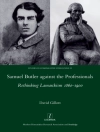This book presents a unique perspective from an underrepresented region in the Global South. The volume features four different countries in the region: Barbados, Guyana, St. Lucia, and Trinidad and Tobago, as well as Martinique, an island located just north of St. Lucia which is an overseas region of France. It documents innovations in learning and teaching Spanish, French, and Chinese in the case of the English-speaking countries, and English as a foreign language (EFL) in the case of Martinique. The chapters cover different aspects of language education in the Caribbean and will be of particular interest to those involved in managing change in language education that attempts to mediate between global trends and local needs.
Spis treści
1 Foreign Language Education in the Southern Caribbean: An Overview (Diego Mideros, Nicole Roberts, Beverly-Anne Carter, and Hayo Reinders).- 2 Methodological Suggestions to Increase Students’ Intercultural Competence in the English-speaking Caribbean (Carmen Céspedes Suárez).- 3 Teaching Pronunciation in a Blended Learning Environment (Frank Bardol).- 4 Teaching beyond the Classroom: Project-based Assessment in a Language Education Course (Pamela Rose).- 5 Values-Based Innovation in the Caribbean Context: Grounding a Postcolonial Pedagogy for the Cave Hill Spanish Section of the University of the West Indies (Ian S. Craig).- 6 Innovation in Language Education Partnerships: The Case of the Confucius Institute @UWI (Beverly-Anne Carter).- 7 Issues and Challenges of Continuing Education for FLE Teachers in the English-Speaking Caribbean (Sabrina Lipoff).- 8 Learning Spanish beyond the Classroom in a Corporate Setting (Diego Mideros and Paola Palma).- 9 ‘‘Guess I have no choice but to do the e-book.” Non-specialist Learners’ Perceptions in Spanish and Other Languages during the Pandemic (Beverly-Anne Carter, Avian Daly, and Mathilde Dallier).- 10 Foreign Language Learning and Teaching in the Southern Caribbean: Future Directions (Diego Mideros, Nicole Roberts, Beverly-Anne Carter, and Hayo Reinders).
O autorze
Diego Mideros is a lecturer in Spanish at The University of the West Indies, Trinidad and Tobago. He coordinates the non-specialist Spanish language courses at the university’s Centre for Language Learning. His interests are learner autonomy, out-of-class learning, identity in language learning, and qualitative approaches to L2 research.
Nicole Roberts is a senior lecturer in Spanish and the Acting Director, Centre for Language Learning, The University of the West Indies, Trinidad and Tobago. She has published on social and socio-cultural factors which impact reading comprehension and writing in Spanish as well as the importance of study abroad on FL acquisition.
Beverly-Anne Carter is a retired Professor of Applied Languages and Director (2005-2022) of the Centre for Language Learning, St. Augustine Campus of The University of the West Indies, Trinidad and Tobago. She has published in the areas of learner autonomy in language learning, foreign language pedagogy and methodology, and language policy and planning.
Hayo Reinders (www.innovationinteaching.org) is TESOL Professor and Director of Research at Anaheim University, USA, and Professor of Applied Linguistics at KMUTT in Thailand. He is founder of the Global Institute for Teacher Leadership and editor of Innovation in Language Learning and Teaching. His interests are in out-of-class learning, technology, and language teacher leadership.












